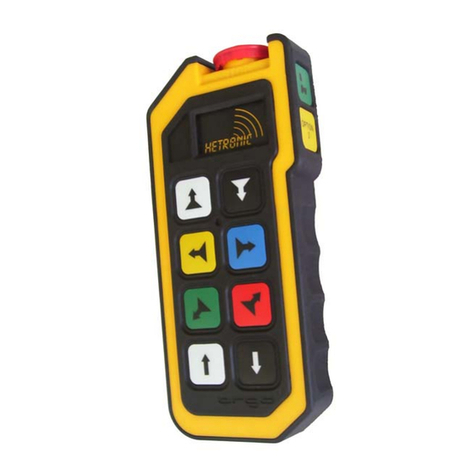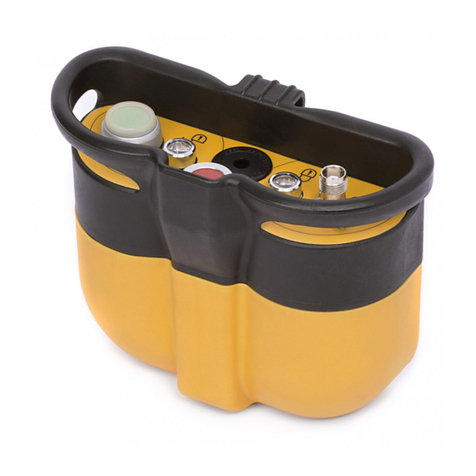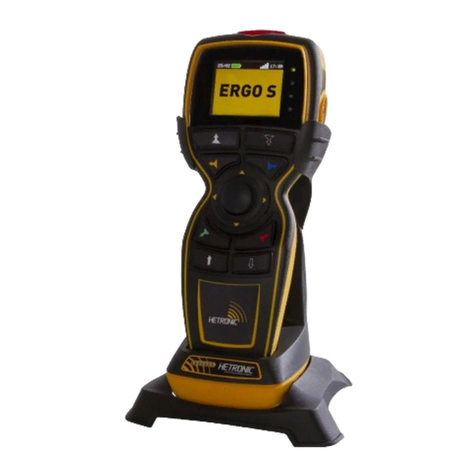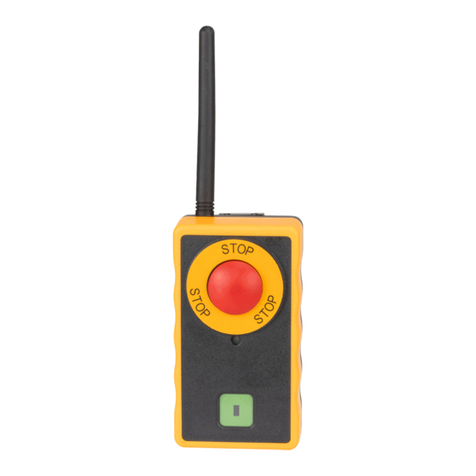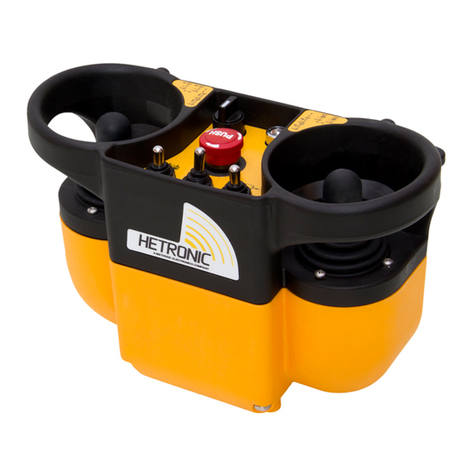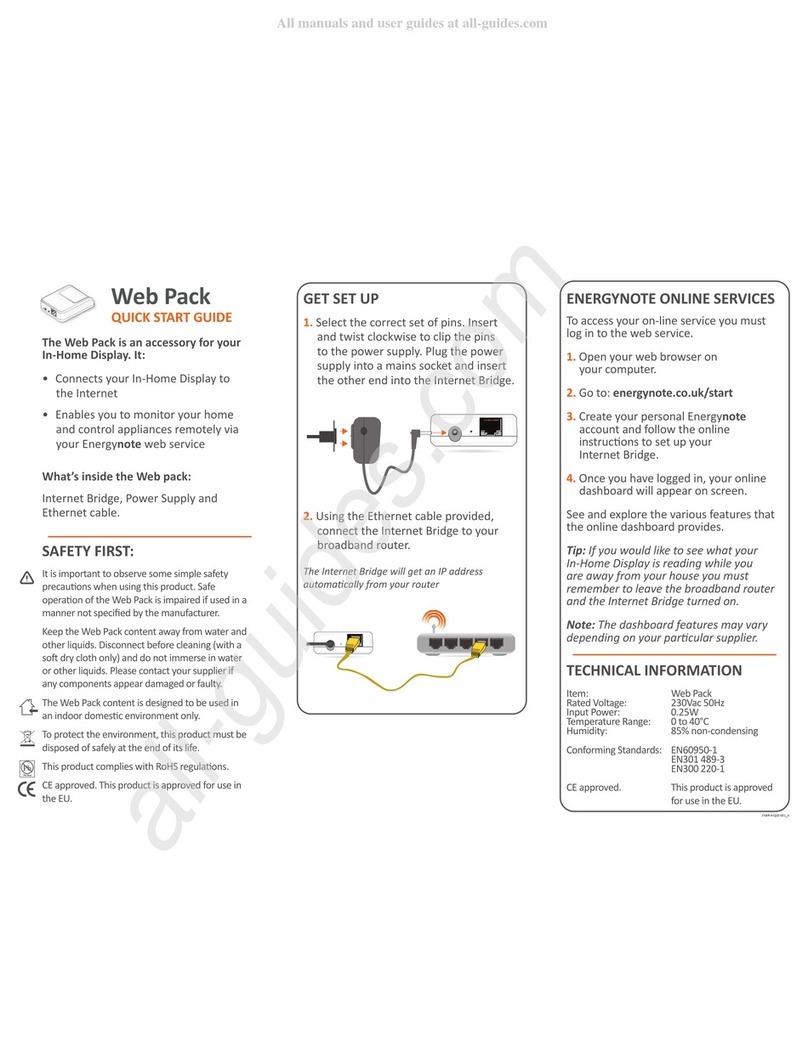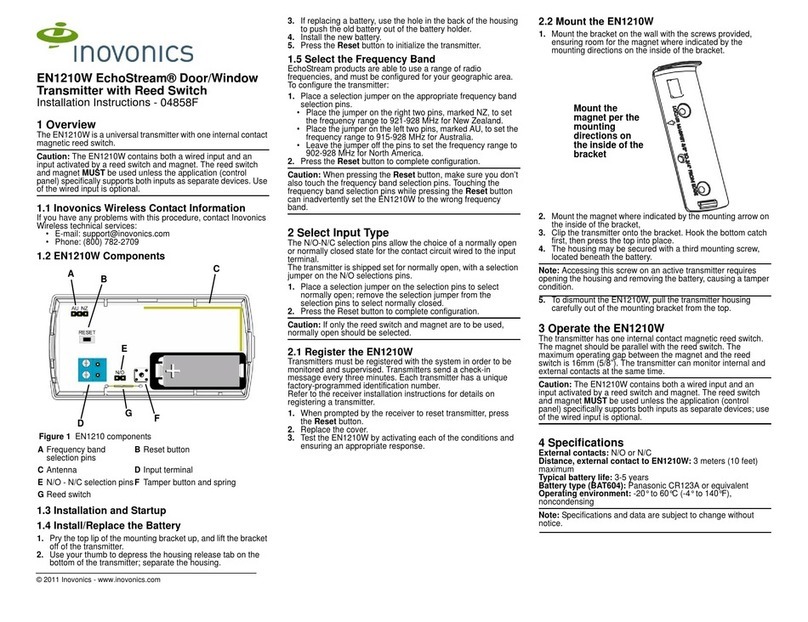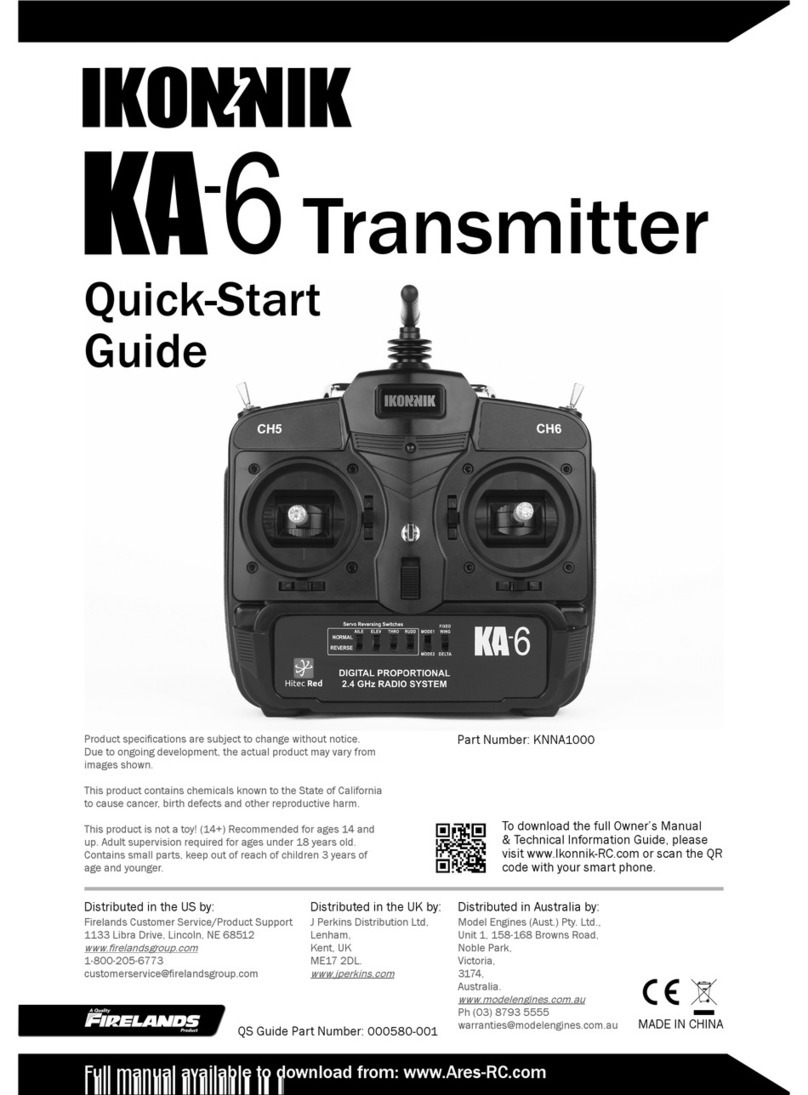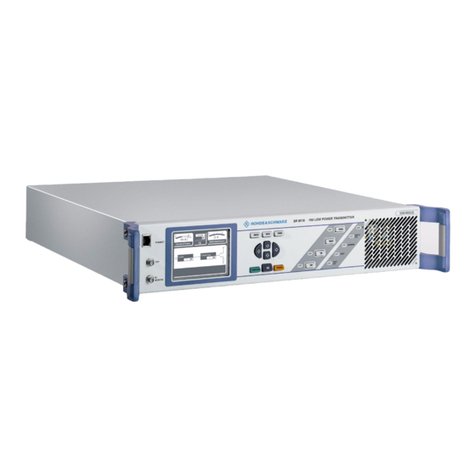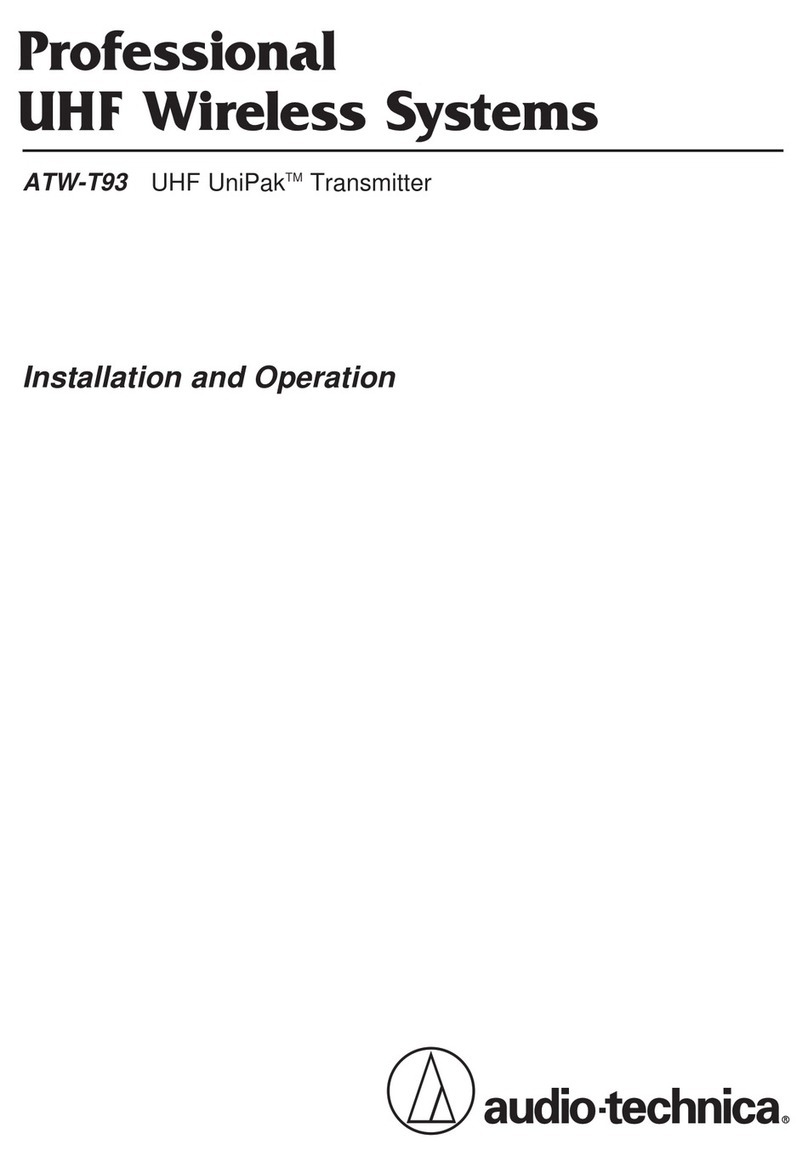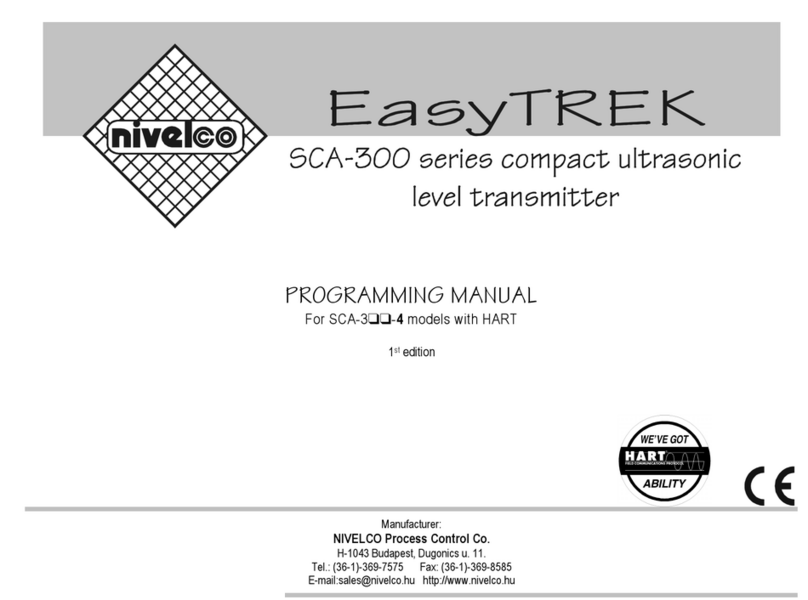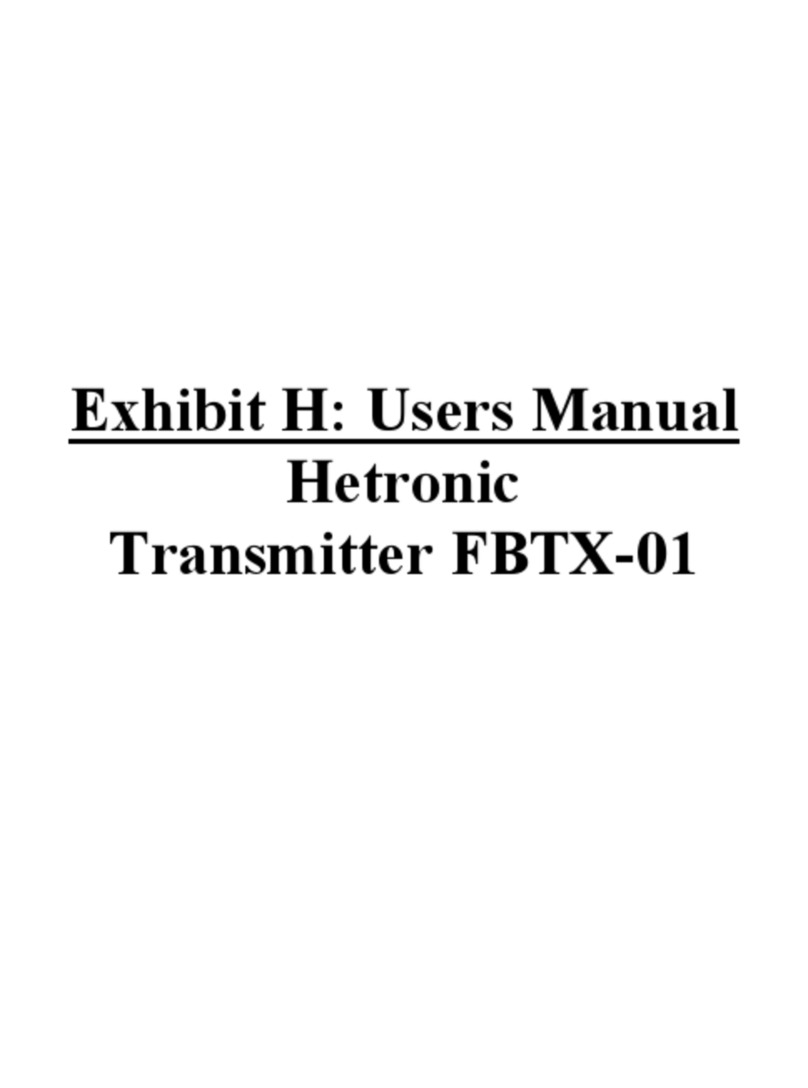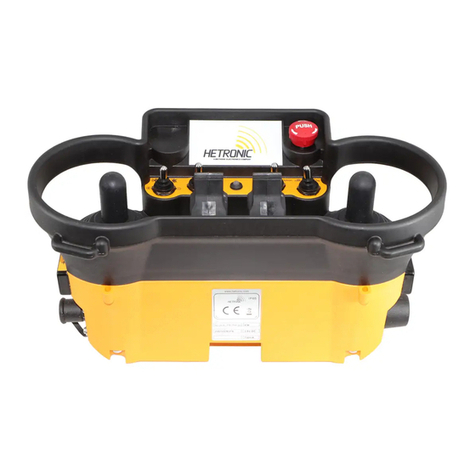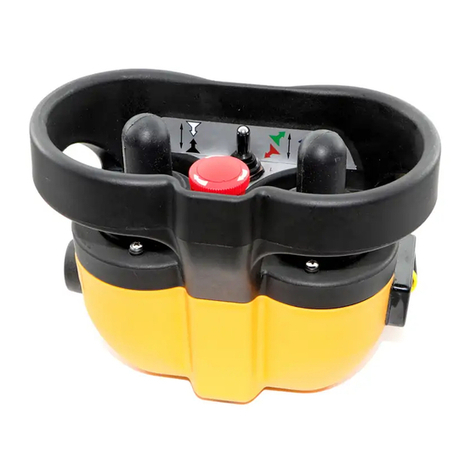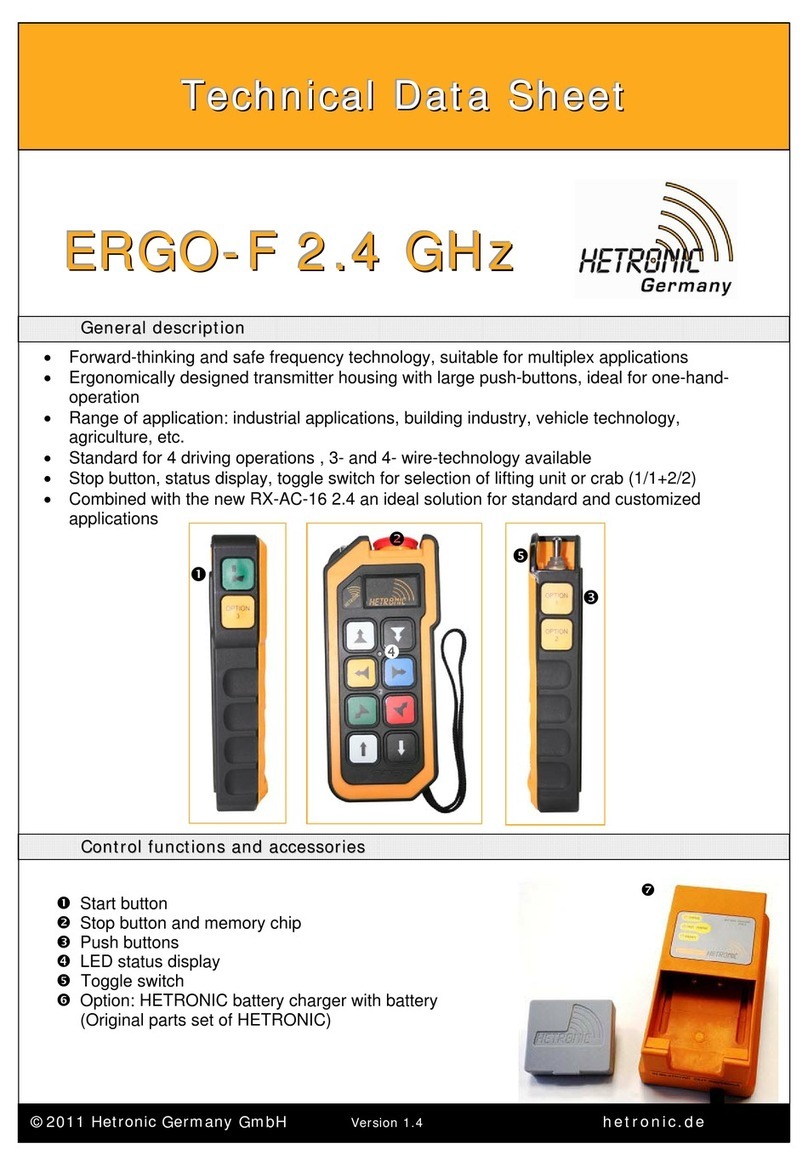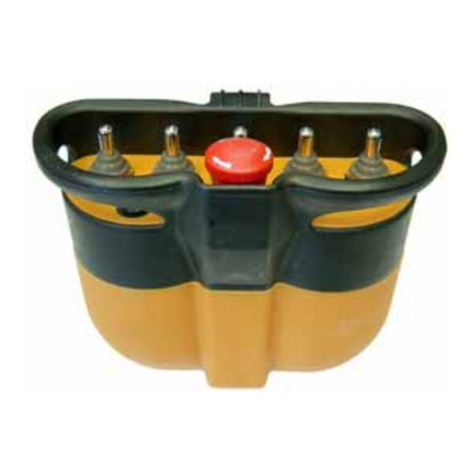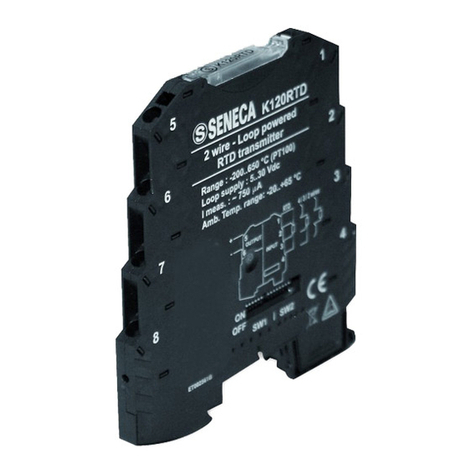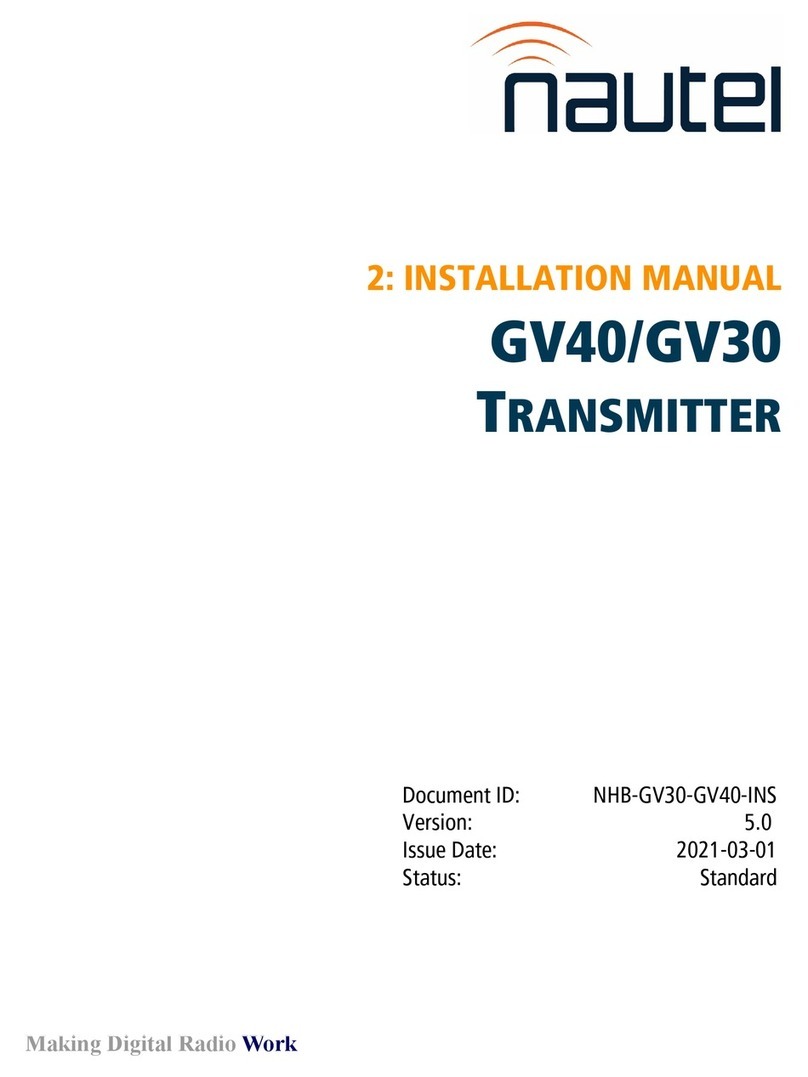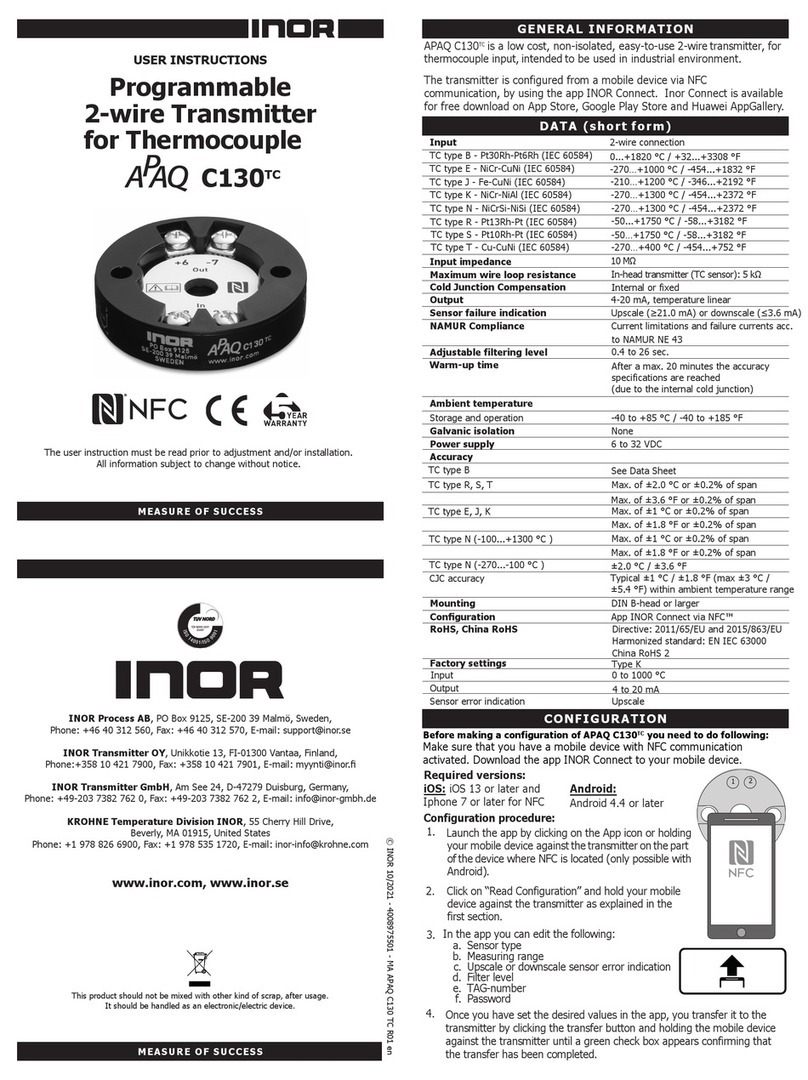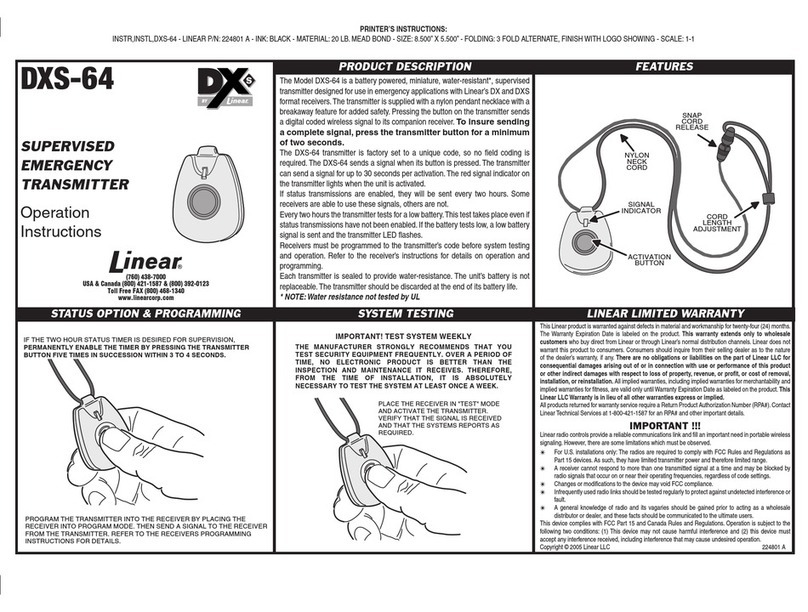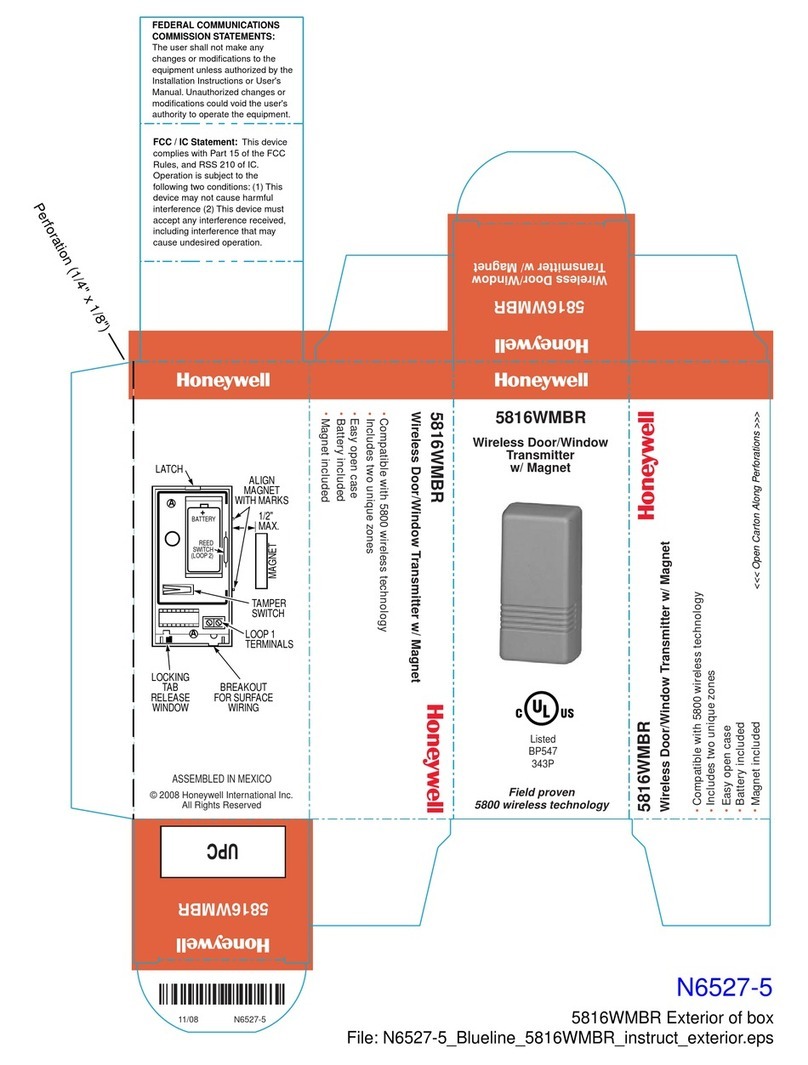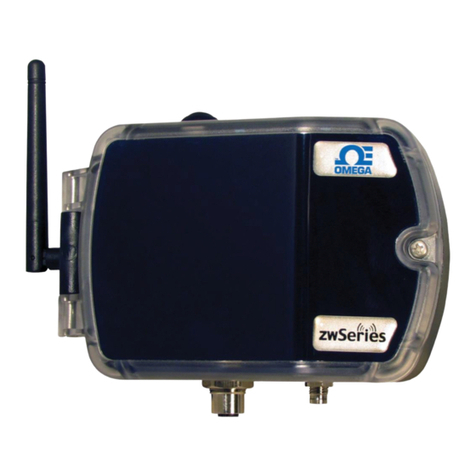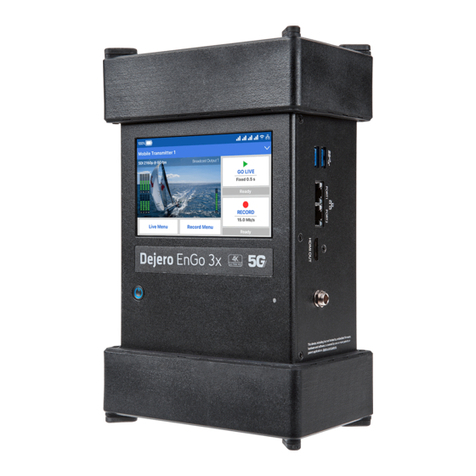www.hetronic.com
READ THIS FIRST
BEFORE OPERATION
Check the condition of your transmitter once a day,
before the start of an operation and at all shift
changes:
• Visually check the transmitter for any physical
wear or damage.
• Confirm that you can read and understand all of
the safety labels.
HOLDING YOUR TRANSMITTER
Hold the transmitter upright with the front facing you.
Confirm that you are able to easily read and
understand all operation text and symbols.
DANGER: Do not operate this transmitter
unless you have been trained in the safe and
proper operation of the radio control system
and the machinery it is to control.
Be alert to unsafe conditions and be aware
that radio remote control commands can take
place around obstacles and out of your direct
sight.
ALWAYS confirm that the machine and
remote control STOP functions work properly
BEFORE beginning any machine operation.
Turn OFF the transmitter when not in use.
Remove the Memory Key (if equipped) when
the unit is placed any distance away from
you.
WARNING: Test the STOP function. NEVER
operate the machine if the STOP function
does not work properly.
WARNING: Never operate a transmitter with
worn or damaged parts.
WARNING: Holding the transmitter
improperly while operating your machine
could result in unexpected machine response
!
!
!
!
STARTING YOUR TRANSMITTER
1. Confirm that all equipment manufacturer safety
measures have been followed.
2. Confirm batteries are fresh or fully-charged.
3. Depress the STOP pushbutton.
4. Rotate the KEY SWITCH to the ON position.
NOTE: If the KEY SWITCH fails to turn, confirm that
the KEY CAP is fully inserted.
A buzzer sounds, then in about 3 seconds, a
second buzzer sounds.
After a brief self-test, the green Operational
LED flashes.
NOTE: The Operational LED is not shown here
because the specific location varies per
application.
5. Determine the type of STOP pushbutton
supplied with your transmitter (see below), and
disengage the STOP function accordingly:
• Pull-out Type—pull out the STOP pushbutton
(do not twist).
• Twist Type—twist the STOP pushbutton.
6. Press the green START/HORN pushbutton
(if equipped).
7. Test the machine functions to ensure that the
machine responds as expected.
8. Push in the STOP pushbutton and test the
machine functions again to confirm that they
DO NOT function.
DANGER: Machine functions operate during
this test. Confirm that it is safe to test the
functions and there are no obstacles near the
machine.
Pull-out Type Twist Type
!
9. Repeat step 5.
10. Press the START/HORN pushbutton
(if equipped).
Your system is ready for operation.
STOPPING YOUR TRANSMITTER
1. Depress the STOP pushbutton
2. Rotate the KEY SWITCH to the OFF position.
3. Remove the KEY CAP.
Store the KEY CAP in a safe place to prevent
unauthorized use.
EMERGENCY STOPPING
Press the STOP pushbutton. Confirm that all
dangerous situations are corrected before restarting.
UNDERSTANDING THE OPERATION LED
The green Operation LED indicates the following
operational condition and status:
• Steady Green - Transmitter is ON, but not yet
operational.
• Flashing Green - Transmitter is operational.
LOW BATTERY ALERT
During operation, a buzzer sounds to alert you to a
low battery condition.
For safety reasons, the transmitter automatically
shuts down after 30 seconds. Use this time to place
your machine in a safe position.
To restart your transmitter, replace the discharged
batteries, and see the Starting Your Transmitter
procedure for next steps.
DANGER: If any machine functions operate
with the STOP pushbutton depressed, STOP
IMMEDIATELY, turn OFF the transmitter,
remove the batteries, and see your supervisor
for next steps.
!
